Planowane rozpoczęcie
Cena
Czas trwania
Tryb nauki - stan na 15.12.25
STUDIA PODYPLOMOWE
IT managers are sought after on the labor market, they usually work in interesting projects and earn great money! This is one of those professions that undoubtedly has a bright future ahead of it. During the classes, you will meet with experienced managers, team leaders in software companies, IT project managers and experts in the field of process management and system maintenance. The presenters will tell you the secrets of this profession, warn you against the pitfalls that may await you and tell you where to look for the best job. These studies are a really great choice!
Manager IT (online english version)
Informacje o kierunku
The studies are aimed at people who:
- are IT specialists and are thinking about further development and promotion,
- they have just become IT managers and are trying to get used to a new position,
- managers of departments other than IT who want to become managers in the IT department,
- current IT managers who are looking for new inspirations and want to learn about new trends.
The studies also provide a forum for exchanging experiences with IT industry practitioners.
COMPETENCE BLOCK
IT Service and Infrastructure Management
SUBJECTS
Introduction to IT management
Presentation of current trends in the IT world. General introduction to various norms, standards, methodologies and frameworks used in IT, which will be discussed in other subjects during the studies, including:
- classical and agile methodologies for running IT projects (waterfall vs agile),
- alternative concepts for maintaining software,
- IT services and exploiting IT resources (ITIL, DevOps),
- standards used in the industry such as: ISO/IEC 20000, PN-EN ISO/IEC 27001, BS 7799-1:2000,
- the role of the leader in IT teams,
- others.
number of hours: 4
Fundamentals of modern IT service management practices
IT service management in the classic approach:
- basic definitions,
- roles and functions,
- service life cycle,
- service strategy,
- service design,
- service handover,
- service operation,
- continuous service improvement,
- selected processes.
Introduction to modern IT service management practices:
- key concepts,
- 7 guiding principles,
- 4 dimensions of service management,
- service value system,
- service value chain and activities,
- management practices.
number of hours: 16
Best practices in IT service management - advanced level
During the classes, issues that allow for the improvement of IT processes operating in IT departments and at the interface between IT departments and business will be discussed, including in particular:
- the concept of Lean management,
- the application of Lean management in IT - Lean IT,
- the concept of waste and methods of its elimination, discussion of various examples of waste: Muda, Muri, Mura,
- the process of IT incident management,
- the process of IT problem management,
- the processing of event monitoring in IT environments,
- analysis of the root cause of problems,
- planning of corrective actions and remedial measures (the concept of bypass and permanent removal of the root cause).
number of hours: 8
Business continuity management
Business continuity management is a key aspect of every organization's operations. IT plays a significant role in this aspect.
Situations that may threaten the functioning of a company or have a significant impact on it can happen at any time. IT solution failures (e.g. a fire in the server room of a global hosting provider, OVHcloud, global MS Teams server failures, blocking of Maersk servers due to the Petya ransomware) or problems related to the operation of companies' IT infrastructure during the global crisis caused by the SARS-CoV-2 virus) are a strong example of this.
The following topics will be discussed in this class:
- what is IT Service Continuity Management (ITSCM), elements of ITSCM,
- creating a Business Impact Analysis (BIA) and defining potential damage and losses,
- creating an IT service continuity strategy,
- building business continuity plans,
- creating recovery scenarios and action plans,
- crisis management,
- IT Service Continuity Management (ITSCM) and Business Continuity Management.
number of hours: 8
COMPETENCE BLOCK
Project management in classic (Waterfall) and agile (Agile) approach
Subjects
Agile Software Development
Participants will familiarize themselves with the origins of the agile approach described in the Agile Manifesto. We will introduce the distinction between the idea, framework, and practices.
We will discuss in details two the most popular agile approaches - Scrum framework and Kanban method. We will explore how they can be combined together. We will also discuss the concept of self-organization and cross-functional teams.
We will also take a look at other methods, such as AgilePM and XP (Extreme Programming). We will go briefly through scaling methods, such as Nexus, LeSS, and SAFe.
During the sessions, real examples of using agile methods in IT organizations will be presented, as well as practices for implementing agile approaches in teams, projects, and entire organizations.
number of hours: 16
A classic approach to IT project management - with elements of product management
A classic approach to IT project management - with elements of product management
The course presents the most important concepts in the field of IT project management. It introduces participants to the definition of a project, discusses its elements and presents differences from other types of initiatives.
Additional focus is put on the project goal: how to define it, measure it and whether it is needed at all?
During the course, the group discuss the most important elements of project management methodologies: PRINCE2 and PMI.
Students will be introduced to how to prepare a schedule and cost estimate. The process of risk management and tracking project progress will be discussed as well.
The course is keep in a joint discussion convention and joint search for answers to questions, solving case studies and sharing knowledge and experience.
number of hours: 16
Management of functional and non-functional requirements
Defining requirements is crucial for the proper implementation of a project or creating a product in an Agile approach. During the course, the following issues will be discussed:
- what is a requirement,
- the requirements management process,
- types of requirements:
- business requirements,
- stakeholder requirements,
- functional requirements,
- non-functional requirements,
- transitional requirements,
- functional requirements vs. non-functional requirements (usability vs. quality),
- techniques used in requirements elicitation,
- requirements decomposition:
- classic approach – Work Breakdown structure (WBS),
- agile approach – Epic -> Feature -> User story -> Task,
- describing requirements,
- introduction to requirements testing,
- application of FURPS+ classification in managing non-functional requirements.
number of hours: 12
Quality in the software lifecycle
Quality – approaching the topic from different perspectives: product quality, quality in the process.
Aspects of quality in different software development models will be discussed: traditional (waterfall), Agile/SAFe.
A ‘whole-team approach’ will be presented in terms of shared responsibility for the quality of the final product and the role of the leader in the area of efficiency and supporting the development team.
In addition, the topic of holistic consideration of quality, not limited only to the execution or not of planned tests, will be raised.
During the classes, theoretical issues will be intertwined with practical use of knowledge and examples of the use of different approaches. The classes will be held in the form of a lecture and workshop work in groups.
number of hours: 8
COMPETENCE BLOCK
Supporting people and IT teams
SUBJECTS
Building the mental resilience of the leader and the team
Objective of the course: to familiarize students with practical tools for stress management in situations of working under pressure.
Description of the course: The course is a lecture and workshop. During the course, students will learn:
- What is pressure? Psychological and biological foundations of stress,
- Towards building mental resilience – the foundations of performance psychology,
- Resilience, endurance and mental flexibility,
- Three fundamental skills for building mental flexibility – the MAC model,
- Mindfulness – how to return to the present moment in a task-oriented situation,
- Acceptance of discomfort – how to make pressure and stress an ally,
- Towards values – how to navigate in difficult times and do what is worth doing,
- From the sports psychologist's toolbox: modern biofeedback technologies as a tool supporting the manager,
- The importance of crisis and difficulties,
- Pop-psychology traps – how not to get lost in the world of social media and self-help books.
Form of assessment: attendance and activity during classes.
number of hours: 8
Communication in the IT organization
The aim of the course is to develop communication skills needed by IT managers.
We discuss models, styles and effective patterns of both verbal and non-verbal communication.
Moreover, we focus on public speaking and presenting incl. elements of story telling. Additionally, we discuss the topics of communcating "upwards" and “downwards” in the organization, i.e. how to effectively reach an agreement with managers at higher levels as well as team members.
During the classes, we will do many practical exercises and exchange experiences.
number of hours: 8
Cooperation Between Manager and the IT Team
Various approaches to manager-team collaboration will be presented during the classes, with a focus on modern IT leadership models. The sessions will combine theoretical concepts with practical examples and mini-workshops in groups. The thematic scope includes, among others:
- Key elements of a well-functioning team,
- Satisfaction, motivation, engagement,
- Recruitment and onboarding,
- Manager's role depending on the organizational model,
- Culture and values in the organization and in the team,
- The impact of cognitive biases on manager's decision-making,
- Change management, team conflicts, basics of negotiation techniques,
- Building an effective team.
number of hours: 16
Foundations of managerial positions in IT teams
The course aims to familiarize participants with various aspects of management and prepare them to effectively fulfill the role of a manager and leader. We begin by defining the role and characteristics of a manager, and then compare it with the role of a leader.
Based on one of the largest technology companies in the world, we discuss expectations from the role of a manager in IT companies. Each participant has the opportunity to diagnose their preferred management style.
We also discuss basic managerial tools, and define: what is success in the role of a manager.
As part of the classes, we will do many practical exercises and exchange experiences.
number of hours: 8
Assertive leadership – effective and comfortable goals achieving
The purpose of the course is to familiarize students with the definition of assertiveness and show it in the context on non-assertive attitude, focusing the most on pros and cons of all of them.
Participants will learn how to build assertive leadership attitude and they will know how to increase their effectiveness in achiving team’s and individual goals. Moreover they will practice handling difficult situation in their individual relations with the employees and among team members.
Program is focusing on training below skills:
• assertive request / demand,
• assertive refusal,
• assertive boundaries setting,
• dealing with criticism and negative assessment,
• accepting compliments.
Theory will be combine with practical examples and workshops. This will allow participants to use the acquired skills in both their professional and personal life.
number of hours: 8
COMPETENCE BLOCK
IT, Compliance and Legal Issues
SUBJECTS
Legal aspects of IT functioning in the enterprise
The aim of the classes is to familiarize students with the most important issues related to IT contracts in the enterprise. The principles of contracting work and the most important concepts used in conversations with lawyers and in negotiations will be discussed.
The classes will discuss commonly used contracting methods and types of contracts. Implementation contract, used when creating software, service contract - useful when maintaining created software and other types of contracts. We will also discuss the most important clauses used in these contracts to give students specific examples of situations in which they can be useful and which should be secured.
The classes will take the form of a joint discussion and joint search for answers to questions, solving case studies and sharing knowledge and experience.
number of hours: 8
IT audits. Best practices
IT audit is the basis for ensuring compliance between the expected state and the current state:
- sets of good practices for conducting audits, including ISACA recommendations,
- types of audits,
- methods used during audits,
- audit process,
- audit evidence and documentation,
- audit recommendations.
number of hours: 4
COMPETENCE BLOCK
IT from the financial side
SUBJECTS
Controlling in IT
The course presents a practical combination of controlling principles with models of IT organization management, IT services and projects. The course content is based on the following elements:
- basics of controlling (budgeting, strategic/operational controlling),
- IT controlling (TCO, controlling vs ITIL, and reporting),
- IT project controlling (specifics, cost calculation, results control, portfolio control)
- IT services controlling (controlling in shared services, SLA/KPI).
After the course completion, the participant will:
- understand finance management methods within IT services and projects,
- understand the principles of cooperation between business and IT, based on the financial data.
number of hours: 8
Financial and management accounting for IT manager
If you do not have a financial background and you are often lost in financial topics, this course is for you. You will receive a solid pill of financial knowledge in a very friendly form. In this course you will learn:
• What are the main financial units in the organization and you will learn their scope of responsibilities,
• What are the organization's standard financial documents and what can be learned from them,
• You will learn basic financial concepts like EBIT, EBITDA, OPEX, CAPEX,
• You will learn the most important financial topics that are worth knowing as an IT manager,
• You will see the world of finance on specific examples of well-known companies from the IT industry.
numbers of hours:8
COMPETENCE BLOCK
Current trends in IT
SUBJECTS
The Foundations of Modern Agile and Their Application in the Field of Cyber Security
- The 4 principles of Modern Agile,
- The principle of Defense in Depth and its utilization in procedural, cultural, and communication dimensions within an IT organization,
- Delivering value in IT organizations from the perspective of Cyber Security,
- The most common types of cyber threats and how to protect against them.
number of hours: 8
DevOps in Development and Operations
- DevOps history,
- Devops examples and definitions,
- DevOps myths,
- Who is DevOps Engineer,
- Key DevOps principles within CALMR model including practical examples,
- What challenges/problems DevOps can solve in connection with Agile,
- Chosen DevOps practises within Continuous Delivery Pipeline model.
number of hours: 8
The classes will be conducted by practitioners with many years of experience in the IT industry - both in software development, its maintenance and running IT projects. They have gained experience in companies with several to several dozen thousand employees. The instructors worked in the classic approach (e.g. ITIL, Prince) as well as agile (e.g. DevOps, Scrum).
People with experience in being team leaders, project managers, people responsible for software development, IT system maintenance, IT process implementation and people responsible for IT departments from the financial side were engaged to conduct the classes. Academics (also at the level of Professor) conducting research on the latest trends in the IT industry and implementing scientific projects in this area were invited to cooperate. The profiles of selected lecturers are presented below.

mgr inż. Katarzyna Bieszk
Graduated from Technical University of Gdańsk at Mathematics and Physics. 20 years at IT Banking Industry.
Worked as e-banking team assistant, system analyst, software engineer and project/program manager. Managed international distributed project teams mainly in Scandinavian environment. Delivered many type of projects: business, software development and infrastructure. She is passionate about the teamwork and learning by doing. From many years she is leading Project Managers teams working with traditional and Agile/SAFe ways of working.
She is also DevOps passionate leading various DevOps trainings.

mgr Iwona Borzym
Law graduate at the University of Gdansk. In bankin for 27 years, for 17 yers in various roles related to human resources management, for 8 years actively supporting and partnering with leaders in Technology industry.
Ambassador of positive psychology and assertive communication. Working with Technology leaders on a daily basis and supporting them in leading their teams in an engaging and trust-building way. She is experienced in creating and conducting workshops developing leadership skills, like: building trust, appreciating employees, assertiveness. She believes that honesty and respect are the fundament of good relations and leading should start with yourself. She builds on talents.
In private life – fun of reading and travelling, actively promoting work-life balance.
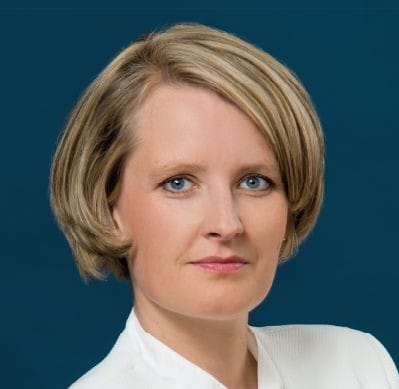
mgr Monika Górna
Graduate of the University of Gdańsk, Faculty of Economics, Fachhochschule fuer Technik und Wirtschaft Dresden (Diplom Kauffrau) and alumni of International MBA in Strategy, Program and Project management at Faculty of Management and Economics at Gdańsk University of Technology.
Over 20 years of experience in accounting, finance, financial planning and analysis (FP&A) and managerial reporting. I effectively help teams not only in the financial processes, but also in the leadership area by proactively supporting individuals in their professional growth and career development .
I am always happy to share my experience gained within organizations of various sizes and industries (EKOLAN SA, ENERGA OBRÓT SA, YDP SA, J.S.Hamilton SA, Swarovski Global Business Services Sp z o. o., PwC Business Services Sp z o.o.).
I have experience in managing international teams and process enhancements on various levels.
I am people and process orientated person always enjoying work on various projects.
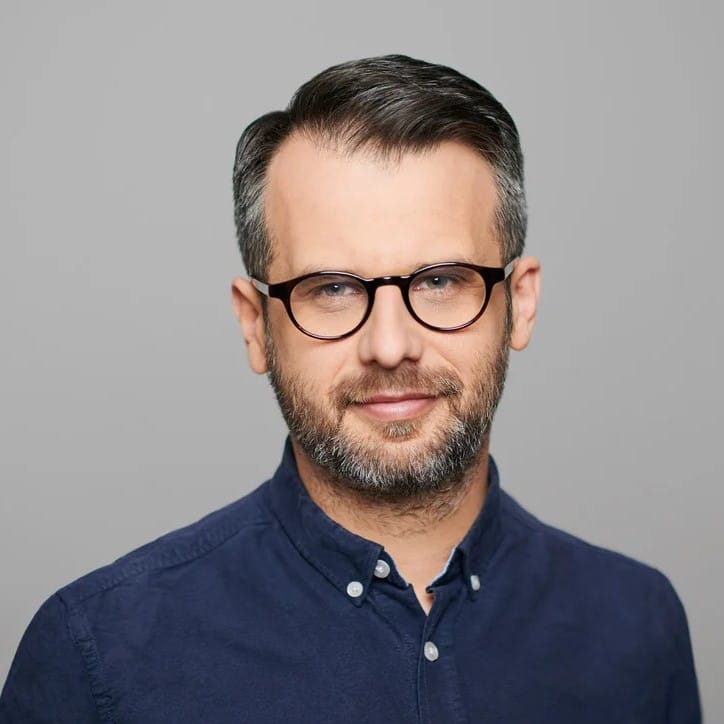
dr Daniel Krokosz
Sports psychologist, academic lecturer with fifteen years of experience in full-time and postgraduate studies.
His main research interests are in the psychological aspects (such as mood and cognitive functioning) of endurance sports and extreme sports, especially ultramarathons, open-water swimming, and mountain climbing. He publishes the results of his research in renowned journals such as Frontiers in Psychology and the International Journal of Health and Environmental Research. In addition, since 2011, he has been working as a sports psychologist with many Polish athletes, including the National SkiJumping Team, the Olympic Team in the Polish Sailing Association, martial arts competitors, the women's basketball team of the premier league, tennis players and footballers. His main specialty is helping players cope with stress, practice attention span and build self-efficacy.
He is a member of the Polish Psychological Association, the Section of Sport Psychology and the European Federation of Sport Psychology Fepsac.

mgr inż. Mateusz Linda
A graduate of Computer Science from Gdańsk University of Technology, Executive MBA studies at Rotterdam School of Management, and (soon) post-graduate studies at MIT with fifteen+ years of experience working between business and IT.
Currently responsible for AI at Hapag-Lloyd, where he is also a member of the team responsible for the development of the company's knowledge center in Poland. Helps business departments define problems and select appropriate solutions. A big fan of simple yet effective communication.(Unfortunately) often surprised by little support from organizations for employees in transitioning to managerial positions. He spends his free time with family, playing tennis and running.
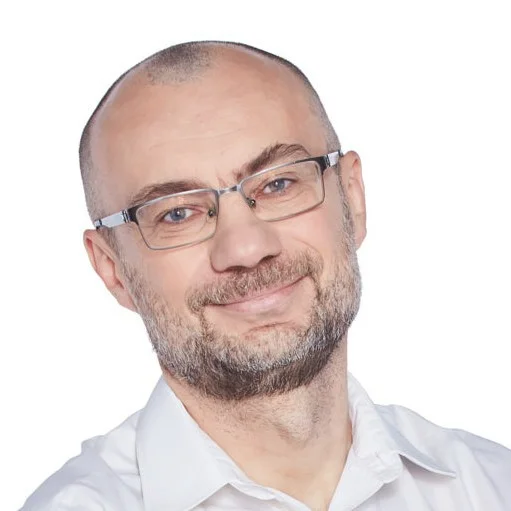
mgr inż. Stanisław Matczak
Agile coach with over 20 years of experience in software development.
He began his career as a developer for insurance and banking systems, working on waterfall projects managed by committees and complex Gantt charts. Then he worked as a Team Lead, managing software development teams.
In 2013, he switched to the agile approach, and since then he has worked with his teams to discover Scrum as well as other agile frameworks and practices. He has held Product Owner accountability for his teams and later transitioned into the Scrum Master role.
Over the years, he has introduced or improved Scrum in a variety of industries, including financial institutions, airlines, eCommerce, software houses, and MDM providers. As a trusted mentor and coach, he has helped other Scrum Masters and Product Owners develop their skills and expertise.
Outside of work, he is organizer of the non-profit Agile3M meetups, which brings together agile enthusiasts and practitioners in the Trójmiasto area. He is also husband and father of three children, and he enjoys participating in orienteering events.
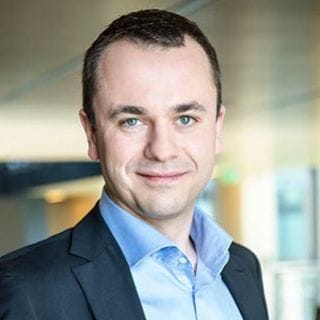
mgr inż. Jan Pieczykolan
He specializes in the area of People Management, Software Engineering and Legal Aspects in IT. Designer an approach to project portfolio management, team competences and the sales process.
He has been professionally involved in IT for over 20 years, progressing through all career levels from programmer, team leader, business solutions architect to team manager and later department director. He has delivered projects for industries such as telecommunications, media and finance. He participated in the negotiations of multi-year framework and delivery agreements. His professional path is related to companies such as DRQ, ABG, Asseco Poland, Excelian, Luxoft Financial Services and AirHelp.
He is a graduate of computer science at the AGH University of Science and Technology in Krakow. He holds an Executive MBA degree (diploma from the Rotterdam School of Management Erasmus University and the Gdańsk Foundation for Management Development).
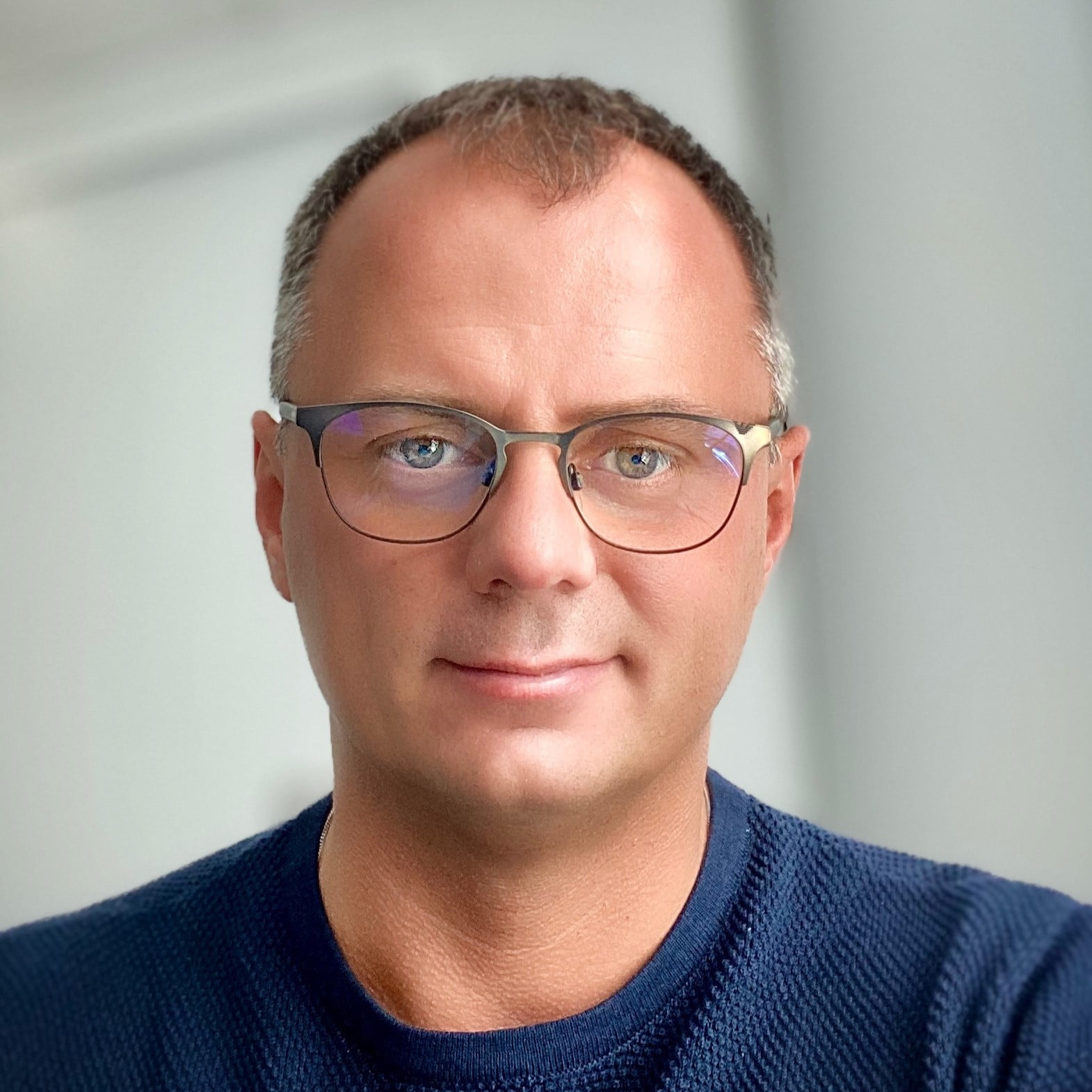
mgr inż. Michał Piłat
A graduate of the University of Technology and Life Sciences in Bydgoszcz, Faculty of Electrical Engineering and Telecommunications, with over 20 years of experience in IT system security.
He has worked as an IT systems administrator (Windows, Linux, Unix, Cisco) and pentester.
Currently, he is the head of the department responsible for offensive IT security.
Passionate practitioner in the development of IT security in large financial organizations, where the scale effect precludes the use of solutions used in individual security tests, and where, in addition to technical solutions, an approach related to risk analysis and assessment must be applied.
Privately, he is a guitarist playing in a music band and a sci-fi enthusiast.

mgr inż. Dawid Wacławski
IT manager, lecturer, and trainer with over 20 years of experience in building and developing effective software development teams.
He gained professional experience in both small startup companies and medium-sized enterprises, as well as global corporations. As a manager and leader, he led agile, distributed, multicultural teams, managed projects, developed products, co-created software development processes, conducted knowledge transfer, assumed responsibility for products and IT systems, and also established the Polish branch of an international IT consulting company from scratch.
For several years, he has been fulfilling himself in the role of lecturer and trainer. He promotes modern leadership models among IT managers. During his training sessions, he emphasizes aspects of a manager's work such as building trust, empathy and multi-cultural sensitivity, effective communication, and creating psychological safety in teams, which are the foundation and key to increasing efficiency and employee engagement. Along with achieving goals, he prioritizes the way in which the goal is achieved.
He graduated in computer science from the Poznań University of Technology, obtained an Executive MBA degree from the Gdańsk Foundation for Management Development (GFKM), and completed the training academy of the SET Group.

dr inż. Sebastian Wilczewski
In the IT industry for over 20 years. Has extensive experience in many areas related to broadly understood IT.
Currently, he works as a leader of an international team of IT analysts, numbering about 50 people, at Nordea. He is responsible for implementing the DevOps approach, requirements management standards and their integration within the entire SDLC (Systems Development Life Cycle). He co-created the Agile transformation and implementation of the SAFe approach at the bank.
He previously worked as a Project Manager, Portfolio Manager, Consultant, implementer, trainer. He led projects, implementations, consulting services and training in companies from various industries, with tens of thousands of computers. He co-created the Project Management Office responsible for coordinating over 100 projects, with a budget of over PLN 130 million managed by several dozen Project Managers.
He is the author of several books. Some of them were on the publisher's bestseller list. He created his own online courses in the field of project management and software legality.
Academic lecturer with a Ph.D. Supervisor of over 100 master's and bachelor's theses. He has spent thousands of hours in training/lecture rooms sharing his experience with students of MBA studies, postgraduate studies, full-time and part-time studies.
He is the director of two postgraduate studies. He was a member of the program boards and the team responsible for the proposal of the strategy of the Faculty of Management and Economics until 2030.
He loves sports activities such as squash and cycling. A fan of photography. He loves traveling both in Poland and abroad.

dr inż. Bartosz Woliński
A graduate of the University of Gdańsk (doctor of economics - doctoral thesis was devoted to the processes of political transformation in China), the Warsaw School of Economics and the Gdańsk University of Technology. Assistant professor at the Department of Computer Science in Management, Faculty of Management and Economics of the Gdańsk University of Technology, where he specializes in the management of IT organizations and projects, digital supply chain and the development of the Industry 4.0 concept (especially ML/AI applications in supply chain management) and IoT technology (including industrial platforms). IoT).
For almost 20 years, as a project and program manager, he led IT and consulting projects - mainly for the industrial sector located in (among others): USA, Singapore, China, South Africa and Venezuela. He worked at Siemens, where he was responsible for the process management and co-created and managed the logistics Shared Services Center. He also served as the president of the management board and managing director of GBS, as well as the EMEA logistics director, responsible for the structures development of the Shared Services Center within the chemical company PPG. Most recently, as an IT director, he managed the digitization and technological support of the global supply chain in the international FMCG concern - Imperial Brands.

mgr Barbara Zaleska
Graduate of the University of Gdańsk, Gdańsk University of Technology and Wabaunsee Community College (USA).
For 8 years she worked at Pomeranian universities, managing teams implementing quality assurance strategies. For 10 years she has been exploring the IT industry, taking care of processes related to quality assurance in the software development cycle. She introduces various solutions for projects implemented in various methodologies: SAFe, Agile, Waterfall and hybrid. She cooperates with diverse distributed teams, helps projects define problems and select appropriate solutions. Privately, a mother of three daughters, a fan of mindfulness, in her free time she works with clay, creating unique ceramics. Weekend runner - in 2018 she ran the Warsaw Marathon.
The studies are carried out over 2 semesters, on average every other Friday (4:30 p.m. – 8:00 p.m.) and Saturday (8:30 a.m. – 4:00 p.m.). Classes begin when a sufficiently large group of participants gathers. Classes are held in groups of approx. 20-25 people, most classes conducted online. Activating teaching methods are used, e.g. workshops, group work, case studies, laboratories using computers
Form of classes: lectures, exercises, laboratory (maximizing the number of classes held online, i.e., approximately 75% online and approximately 25% on-site).
Form of assessment: tasks, exercises, project
Conditions of participation:
- higher education diploma,
- analytical thinking skills,
- willingness to improve qualifications,
- openness to new knowledge and exchange of experiences.
Recruitment: It is carried out throughout the year (the order of applications decides). The application can be downloaded below.
Price: PLN 3,350 per semester (payment in installments is possible). The studies last 2 semesters. There is no entry fee.
Planned start date: March 2026
Basis for issuing a certificate: final work and obtaining a pass in all subjects in accordance with the applicable study program.
Benefits of completing your studies:
- contact with practitioners with many years of experience in IT departments in companies operating in various industries
- obtaining a certificate of completion of studies issued by the Gdańsk University of Technology,
- increasing your value on the labor market and opening new paths of development as elements of conscious development of your professional career,
- building a network of contacts with other students and maintaining positive relationships enabling the exchange of views and mutual support in the professional sphere,
- understanding the mechanisms of an orderly, methodical approach to the functioning of IT departments.
Required documents:
application for postgraduate studies,
original copy of the diploma (which will be returned after the end of the study),
agreement – available for signature in the system after all participants have registered.
Admission is based on the order of applications.
Aktualności aplikacyjne
- Start date of the 1st edition: March 2026
- Classes conducted online in English
- Most classes conducted online
Kontakt
Kierownik Studiów Podyplomowych
PhD. Sebastian Wilczewski
swilczew@zie.pg.edu.pl
T: +48 501 81 81 58
Sekretariat
Joanna Gryczka
joanna.gryczka@pg.edu.pl
T: +48 58 347 19 22
Referencje
Dlaczego studia na PG?